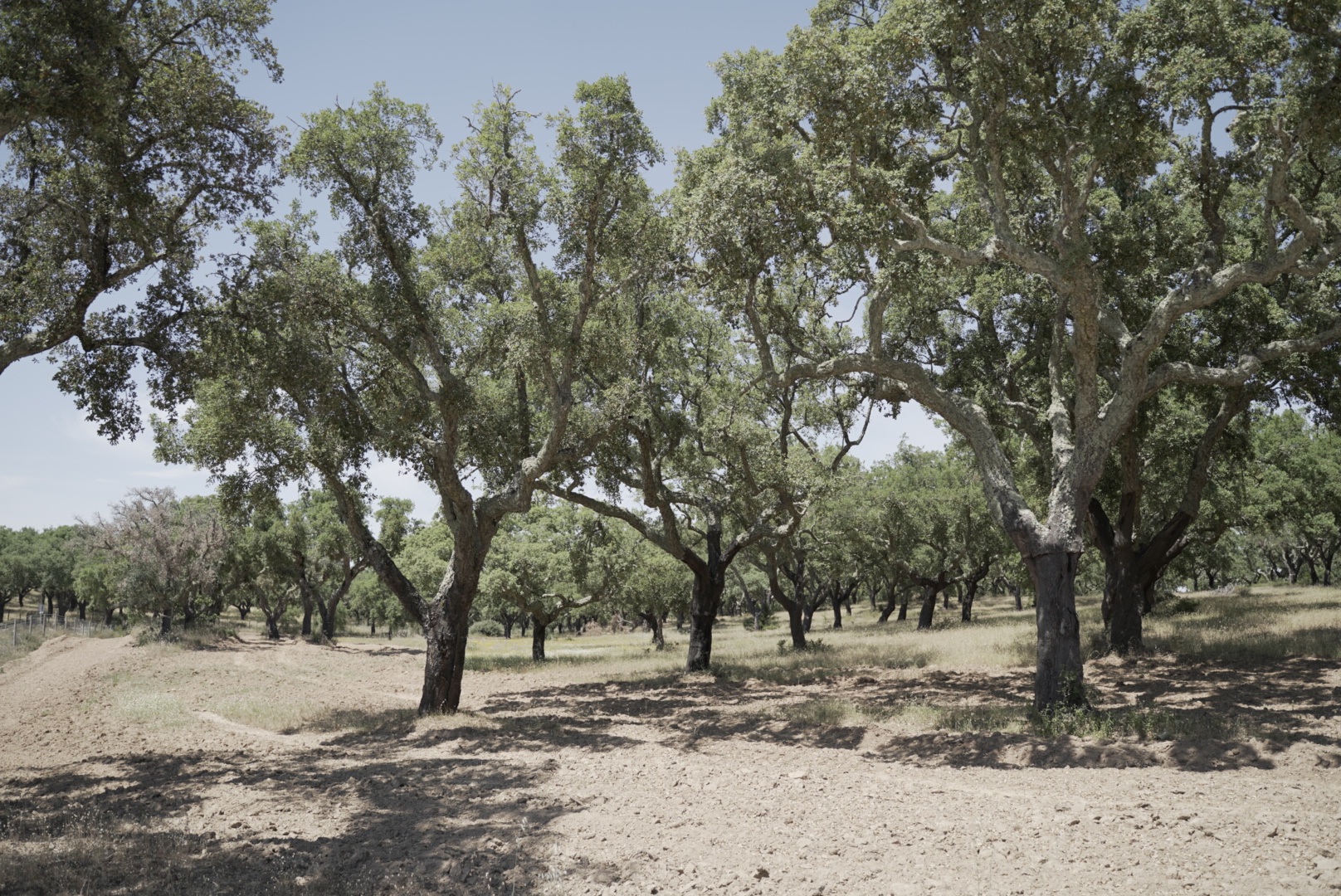The cork we use is from Portugal a bit south-east of Lisbon area. The trees are neither watered, nor treated with chemicals. All our barks are from FSC certified forests.
It is boiled, stored for several months and sliced.

Portugal is the cork expert
Since the company creation we have been working with cork from Portugal and we have never been disappointed. Not only is Portugal the biggest producer of it worldwide (34 % of forest surface), but the quality is also the absolute best.
Portugal has a very long history in cork-oak forests and pays attention to many details. The portuguese association of cork APCOR does their very best to communicate about the industry but as well to educate about it.
Some wrong ideas received:





